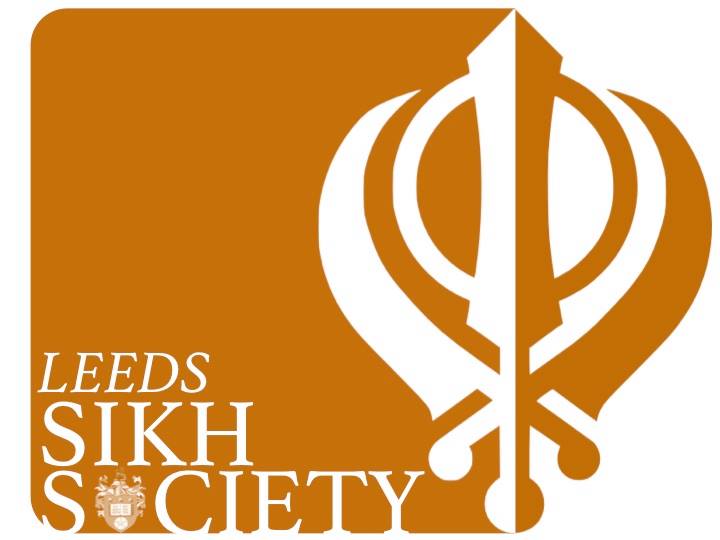Sikhism is the fifth largest religion in the world, and yet it is unknown to many people. Saminda Sidhu tells us all about Sikhism and the work that Leeds Sikh Society are involved in.
There is a large Sikh population at the University of Leeds, many of which make up the Leeds Sikh Society – which last year won best faith society at the Riley Awards. Our society allows students to explore Sikhism as well as providing them with a platform to carry out Seva (selfless service). I hope to give you a well-rounded general understanding of the Sikh faith, and our core values.
A Sikh is a disciple and a learner. As Sikhs we recognise that life is ever-evolving, and we are the students of life. The term Guru is given to the messenger of God. The word Guru is composed of two words (Gu means darkness and Ru means light). The Gurus take us from darkness to light with their teachings. Sikhs do not worship the Gurus. We do, however, revere them; we follow their teachings in order to become closer to God and fulfil our worldly purpose.
Sikhi places a great importance on the belief that the human race is all equal, regardless of gender, religion, race, nationality, or sexual orientation. The light of God resides within every one of us, and the aim of Sikhi is to allows us to connect with the One inside of us.
Just as a potter makes pots of different forms and colours from the same basic clay, and as a Goldsmith moulds jewellery of various types, colours and shapes from the single homogenous material gold; we are all born of the same one light, there is no difference.
Sikhs pray for the wellbeing of all humanity, prosperity for everyone in worldwide community and global peace. Gurbani (Guru Granth Sahib Ji) teaches us that there are no ‘others’, there is only one God, the same God that resides in us all. Sikhi preaches the message of truthful living, equality amongst mankind and social justice. Sikhi places a huge importance on social equality and justice, which is why many Sikhs are often advocates for those in need. We don’t speak of a God who micromanages our existence, instead we use teaching from the Sikh Gurus to provide the spiritual basis for a moral and ethical framework around which purposeful lives can be fashioned. Being a positive member of society is the first step towards spirituality.
“Through selfless service, eternal peace is obtained.”
-Guru Granth Sahib, ang 125.
Within Sikh history, all of the ten Gurus strived towards equality, and towards eradicating the social inequalities that were present, as well as social issues such as poverty. For example, free food is available to everyone in all Gurdwaras as a way of alleviating poverty. Guru Nanak Dev Ji, the first Sikh Guru, rejected the caste system that was prominent in India at the time. Similarly, Guru Ram Das Ji furthered equal rights to women by allowing widows to re-marry in Sikhi.
Guru Hargobind Sahib Ji created the first Sikh army to defend the weak and defenceless, and Guru Tegh Bahadur Sahib Ji was a firm believer in the right to freedom of worship. He fought for Hindu rights to worship at a time where Mughal rulers of India were forcing Hindus to convert to Islam. For supporting the Hindus and refusing to convert himself, Gur Tegh Bahadur Ji was publicly executed, in May 1675.
Sikhs must avoid the five vices: anger, lust, greed, pride and attachment to material possessions. Instead, Sikhs value compassion, humility, patience, love, self-control, truth, wisdom and courage.
The Sikh society run a host of events, including: feed the homeless runs, Langar on campus, Kirtan on campus, as well as many talks from Sikh preachers.
All of our events are open to everyone. Feel free to attend if you wish to learn more about Sikhism, or just to simply help out with our voluntary work. Like Leeds Sikh Society on Facebook to keep updated on events.
Photo credit: LUU Sikh Society Facebook Page

